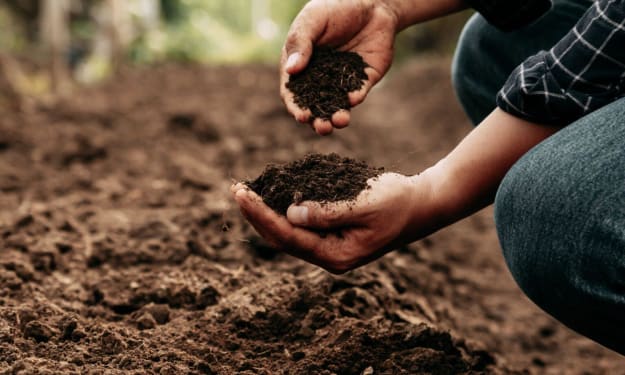Types of Soil Suitable for Summer Cereal Cultivation
The selection of suitable soil is important for successful summer cereal cultivation. Sandy loamy, loamy, silty, red, alluvial, black, peaty, and chalky soils each offer distinct advantages.

Summer grains such as millet, sorghum, and maize grow well in a variety of soil types. Soil selection can significantly impact the quality and productivity of these crops. Understanding the best soil types for summer cereals helps farmers optimize their efforts. This blog will explore the ideal soil conditions for cultivating summer cereals, ensuring optimal growth and productivity.
Sandy Loam Soil

Sand Loam is one of the greatest soil types for summer cereals. It has a considerable quantity of clay, silt, and sand and is fairly depleted. For summer cereals, proper drainage is essential because it prevents waterlogging, which can damage the roots. Summer grains develop early, and the sandy soil's rapid warming aids seed germination. This soil is also very easy to work with, which makes it perfect for agricultural usage with VST and Ace tractors.
Loamy Soil
Loamy soil is another excellent choice for summer cereals. Its proper proportions of clay, silt, and sand provide for optimum drainage and water retention. The organic matter-rich loamy soil gives plants essential nutrients. Additionally, this soil provides excellent root system support, facilitating improved nutrient and water absorption. Higher yields can be achieved by bettering soil preparation and cultivating loamy soils with the use of Preet tractors.
Silty Soil
Silty soil is known for its smoothness and high fertility. It retains moisture well and is useful during the dry summer months. In loamy soils, fine particles hold nutrients better, allowing plants to take them up. This soil is also highly erosion-resistant, helping to maintain soil structure and fertility over time. For farmers using VST Tractors and Ace Tractors, silty soil provides a stable ground for various farming activities, ensuring a productive season.
Clay Soil
Summer cereals may do well on clay soils with high nutrient content and moisture-holding ability, provided they receive little attention. This soil can compress and harden when dry, which may prevent roots from growing. However, clay soil may have its structure enhanced with appropriate ploughing using Preet Tractors. Adding organic matter can also improve its fertility and workability. When managed well, clay soil can support the robust growth of summer cereals.
Red Soil
Red soil, typically found in tropical and subtropical regions, is another option for summer cereals. It is high in iron and drains well. Because red soil might be acidic, lime may be needed to raise the pH. For crops like sorghum and millet, which usually thrive in tropical regions, this kind of soil is ideal. By using VST tractors and Ace tractors, farmers can better prepare red soil and ensure it meets summer cereals requirements.
Alluvial Soil
Summer cereal production is beneficial due to the high fertility of the alluvial soil found along the rivers. It is a clay, silt, and sand combination that retains water and has adequate nutrient availability. Alluvial land is easily tillable, making Preet tractors an excellent choice for mechanized farming. The natural fertility of alluvial soil helps maize and other summer cereals thrive, resulting in higher yields.
Black Soil
Regur clay, sometimes referred to as black soil, is abundant in magnesium, potassium, and calcium. It is helpful during the dry seasons and has a high water-holding capacity. Black soil is especially suitable for maize, as it provides the nutrients needed for growth. This soil type can be heavy and sticky when wet, so using robust machinery like VST Tractors and Ace Tractors is essential for effective cultivation. Proper drainage management can further enhance the productivity of black soil.
Peaty Soil
Summer cereal crops may be grown on peaty soils that contain a large amount of organic matter, particularly in colder locations. This soil may be quite fruitful and retains water well. However, it is often acidic and may require pH adjustments. Using a Preet tractor for soil preparation can help add important amendments, improving soil structure and productivity. Peaty soils can support crops like millet that thrive in nutrient-rich conditions.
Chalky Soil
Well-drained yet often deficient in nutrients are chalky soils with a high lime concentration. Cereal crops that can withstand alkaline conditions are a good fit for them. Their fertility is increased by the addition of organic matter, which makes them more conducive to crop development. Farmers using VST tractors and Ace tractors can better manage chalky soils by adding manure and fertilizer. This helps ensure that summer cereals receive adequate nutrients throughout the growing season.
Conclusion
The selection of suitable soil is important for successful summer cereal cultivation. Sandy loamy, loamy, silty, red, alluvial, black, peaty, and chalky soils each offer distinct advantages. Understanding these soil types improves yields and quality for farmers. Modern agricultural implements like VST tractors, Ace tractors and Preet tractors have played an important role in organizing and managing these soils. With the right soil and management, summer cereals can thrive, providing a productive and profitable farming season.
About the Creator
Enjoyed the story? Support the Creator.
Subscribe for free to receive all their stories in your feed. You could also pledge your support or give them a one-off tip, letting them know you appreciate their work.





Comments
There are no comments for this story
Be the first to respond and start the conversation.